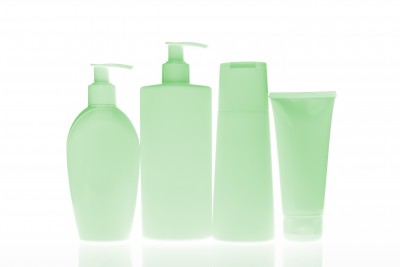On December 3, 2012, the U.S. Court of Appeals for the Second Circuit reversed the conviction of a pharmaceutical sales representative, finding that promotion of FDA-approved drugs for unapproved uses, in and of itself, does not constitute a violation of the Federal Food, Drug and Cosmetic Act (“FDCA”). The Defendant-Appellant in the case, Alfred Caronia, appealed from his conviction in which he was found guilty of conspiracy to introduce a misbranded drug into interstate commerce, a violation of the FDCA. In particular, Caronia was charged and thereafter convicted for promoting the drug Xyrem for uses not approved by the U.S. Food and Drug Administration (“FDA”), a practice known as promoting for “off-label” use. In the foregoing appeal, Caronia argued that his conviction was invalid in that he was essentially convicted for exercising free speech, his right under the First Amendment to the United States Constitution. In reversing his conviction, the U.S. Court of Appeals for the Second Circuit agreed with Mr. Caronia, finding the FDA’s construction of the FDCA to be overly restrictive and not directly advancing the goals of public safety under the Act. The full opinion may be accessed here.
Under the FDCA, the FDA approves drugs for certain indications, known as intended uses. In order for a specific use to be approved by the Agency, the drug sponsor must demonstrate that the drug is safe and effective for its intended use. 21 U.S.C. § 355. Once a drug is approved for a specific use, a doctor may prescribe such drugs for other uses based on his or her sound medical judgment. This practice, commonly referred to as “off-label use,” is a widespread and largely accepted practice, particularly because the regulation of the medical profession is left primarily to the states. As opposed to prescribing drugs for off-label uses, marketing FDA-approved drug products for indications other than those appearing in labeling is a practice that has come under fire by the FDA, with the Agency finding this practice tantamount to marketing an unapproved drug.
Returning to the Caronia case, the Second Circuit considered whether, given the protections of the First Amendment, it was constitutionally permissible to prosecute those engaged in pharmaceutical sales under the FDCA solely for promoting an FDA-approved drug for an off-label use. The Court noted that:
[w]hile the FDCA makes it a crime to misbrand or conspire to misbrand a drug, the statute and its accompanying regulations do not expressly prohibit or criminalize off-label promotion. Rather, the FDCA and FDA regulations reference “promotion” only as evidence of a drug’s intended use.
U.S. v. Caronia, No. 09-5006-cr, slip op. at 26 (2d Cir. December 3, 2012).
Accordingly, while the FDA argued that it did not prosecute Caronia for this off-label promotion and only considered the promotional statements as evidence of the charged violations of the FDCA, the Second Circuit disagreed. Rather, the Court found that the FDA relied solely on evidence of off-label promotion in targeting Caronia and that “[t]he government never suggested, for example, that Caronia conspired to place false or deficient labeling on a drug.” Id. at 29.
Further, because the Supreme Court has held that First Amendment Protections apply to speech in aid of pharmaceutical marketing, Sorrell v. IMS Health, Inc., 131 S. Ct. 2653 (2011), the Second Circuit explained that the government must be able to demonstrate that the:
(1) speech is not misleading and concerns lawful activity;
(2) government’s interest in restricting the speech in question is substantial;
(3) regulation directly advances the government’s interest being asserted,
and
(4) regulation is narrowly drawn in that it may be no more extensive than necessary to serve the government’s interests.
Cent. Hudson Gas & Elec. Corp. v. Pub. Serv. Comm’n of N.Y., 447 U.S. 565-66 (1980) (emphasis added).
Applying this four-part test, the Second Circuit found that while the first two prongs of the test were “easily satisfied,” the FDA failed to satisfy the third and fourth prongs. Caronia at 42. In particular, the Court in Caronia found that off-label promotion is not in and of itself false and misleading or unlawful, and thus warrants protection under the First Amendment. Next, the Second Circuit found that the government’s interest in regulating in the area of drug safety and public healthcare is substantial. Id. On the other hand, the Court disagreed with the Agency’s position such regulation directly advances the government’s interests. Id. at 43-47. The Court based this finding on the fact that physicians are able to prescribe drugs for off-label uses, so the prohibition of statements by pharmaceutical manufacturers and sales representatives would only remotely serve the government’s interest in public safety. Finally, the Second Circuit found that the government’s regulation in this area is not narrowly drawn because there are various less-restrictive alternatives, such as informing the public in differentiating between false promotion and truthful information. Id. at 48.
Because the Agency’s interpretation of the FDCA led the FDA to prosecute Caronia solely based on statements about off-label use, without a finding that these statements were in fact false or misleading, the Court concluded that the Agency could have advanced its goals without restricting all speech in this area. In sum, the Second Circuit concluded that the government’s prohibition was overbroad and therefore found the criminalization of such speech to run afoul of the First Amendment.
For more information about off-label promotion of drugs and the FDA’s regulation of promotional speech, feel free to contact us at contact@sglawfl.com.




